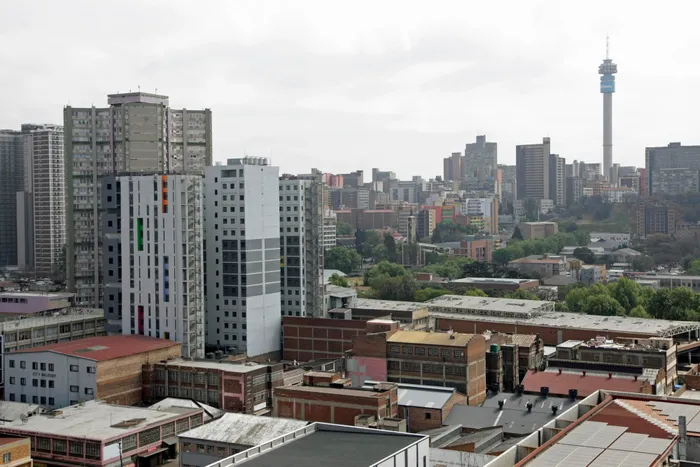Under pressure: KwaZulu-Natal property in doldrums while Joburg shows some recovery

Johannesburg property is showing a slight recovery.
Image: Timothy Bernard/Independent Newspapers
The property markets in South Africa are experiencing a stark divide, with KwaZulu-Natal facing significant challenges while Johannesburg shows slight signs of recovery.
Economic disparities are at the heart of this divergence, influencing property values and market activity across the regions.
In KwaZulu-Natal, property prices have plummeted, with reports indicating a double-digit decline in residential values during the second quarter of 2024.
This alarming trend poses a daunting challenge for sellers, as sluggish demand and economic hurdles weigh heavily on the market.
Carl Velusamy, the school manager at the Management College of Southern Africa’s (MANCOSA) School of Public Administration, emphasises that the province's economic struggles have led to a stark decrease in market activity.
"Addressing these issues requires collaborative efforts from local authorities and stakeholders to stimulate economic growth and enhance the province’s appeal to potential buyers and investors," he says.
In stark contrast, Johannesburg's property market is showing some resilience. The average rent for a two-bedroom apartment increased by 4.5% in 2024, indicating a steady demand for rental properties.
Velusamy notes that while KwaZulu-Natal's declining prices may present opportunities for buyers seeking affordability, current homeowners face challenges in realising returns on their investments.
Kieran Farrelly, chief investment officer and Head of Global Solutions, Real Estate at Schroders Capital, highlights a critical issue: "There is a severe shortage of affordable residential space across major economies. This, combined with demographic and urbanisation trends, is creating opportunities for much-needed housing across various segments."
He points to the importance of catering to diverse housing needs, including workforce and social housing formats, as well as accommodations for students and older citizens.
JP Viljoen, Head for Home Ownership at Nedbank, underscores the affordability pressures plaguing the South African housing market.
"Elevated interest rates and high living costs have made homeownership increasingly challenging for many, particularly first-time buyers and middle-income households," he explains. However, recent rate cuts have begun to ease some of this financial burden, potentially stimulating increased property market activity.
Amidst these challenges, affordable housing is showing signs of revitalisation, particularly in the R350,000 to R700,000 price range. Standard Bank reports a double-digit increase in activity in this segment over the past four years, driven by ongoing urbanisation and a growing need for accessible housing in metropolitan areas.
Toni Anderson, head of Standard Bank Home Services, notes that demand remains strong in Gauteng and the Western Cape, despite economic pressures.
As the property markets in KwaZulu-Natal and Johannesburg continue to evolve, the need for strategic interventions and innovative solutions becomes increasingly clear.
The contrasting dynamics of these regions serve as a reminder of the complex interplay between economic health and real estate trends, highlighting both the challenges and opportunities that lie ahead.